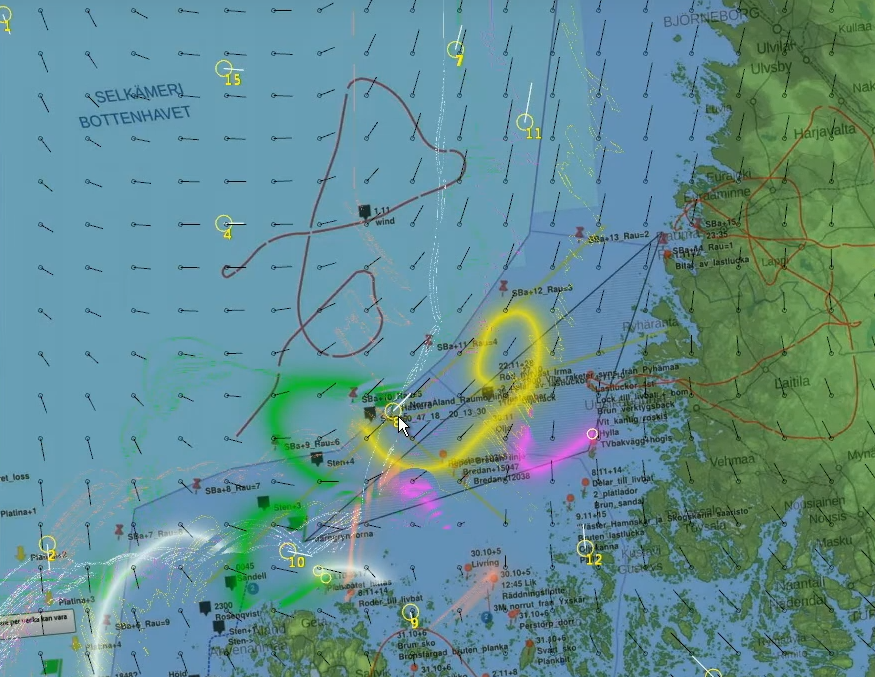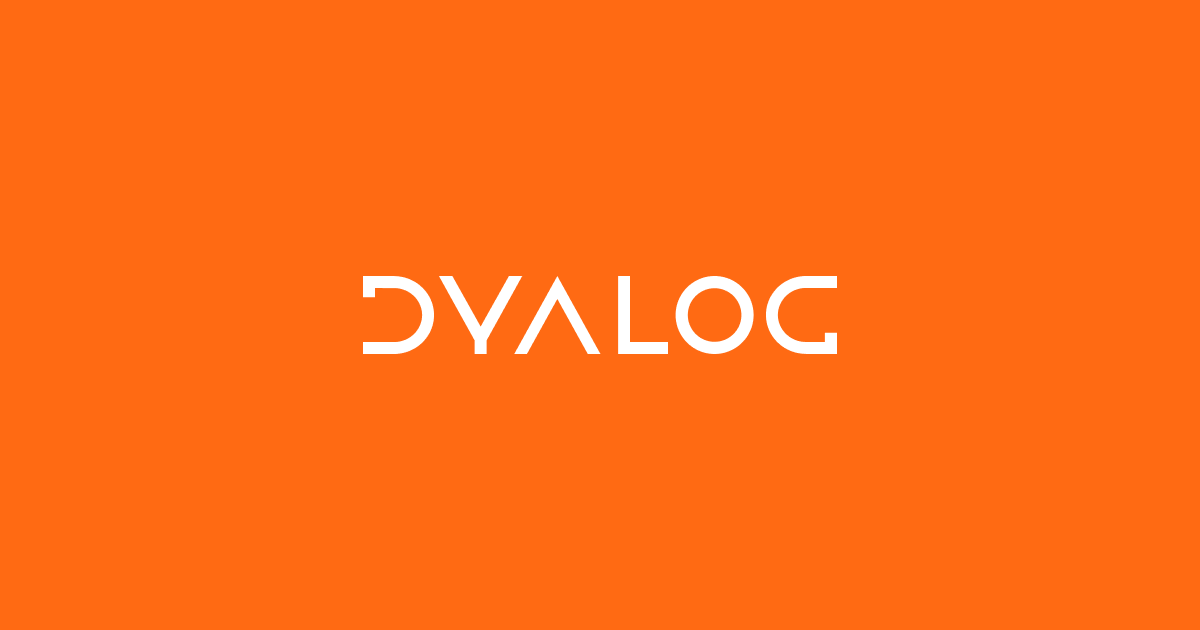Three weeks from today, Gitte Christensen and I will be opening the 2020 Dyalog user meeting. Like so many similar gatherings, we are moving online; this year’s meeting will consist of two 4-hour sessions on Monday 9th and Tuesday 10th November, running from 14:00 to 18:00 UTC. Our hope (so far confirmed by advance registrations) is that this format will allow many more people to attend than a normal meeting, which requires you to set a full week aside and spend money on travel. We hope that the timing will allow attendance from a large part of the globe, and of course it is our intention to make recordings available afterwards for those unable to attend live.
I do subscribe to the proverb about all clouds having silver linings: although all the user meetings that I usually travel to attend have been cancelled or postponed, and I have missed meeting many of you face-to-face this year, it is important to note the unexpected side-effect; there is significantly more APL content being generated and made generally available than ever before! I hope that you have all noticed that Dyalog and the British APL Association have been holding online sessions every two weeks since the spring! A good place to keep track of these events is our event calendar at https://www.dyalog.com/dates-for-your-diary.htm.
Two four-hour sessions is obviously a lot less than the usual 3.5 days plus workshops. You should be able to find a good deal of the “missing” material, such as Adam Brudzewsky’s five-part series on features of Dyalog Version 18.0 (and my own introduction to the new release) at https://dyalog.tv/Webinar, where you can watch it at your leisure.
During Dyalog ’20 we will focus on giving you updates on the most important activities that the team behind Dyalog APL is currently working on. Also, although you may have to wait for Dyalog ’21 in Portugal to meet the winner of the APL Problem Solving Competition in person, Andrii Makukha from the University of Hong Kong will be giving his acceptance presentation online on the Tuesday. Chris and Michael Hughes will give us an update on a tool called qWC, which simplifies the transformation of existing Windows applications into web apps.

At Dyalog ’19, Tomas Gustafsson, author of the stunning Stormwind boat/ship simulator (real time physics engine implemented in Dyalog APL) told the story of the successful search for the M/S Irma, which was was lost in a sudden autumn storm between Finland and Sweden 50 years ago. Because a Finnish TV channel was producing a programme about the Irma, Tomas asked us not to publish the recording of his presentation last year. The embargo has finally been lifted, and we are now able to present the final recording from Dyalog ’19. In Tomas’ Dyalog ’19 video, you can hear Tomas tell the story of how, despite massive search efforts, said to be the biggest ever in Finnish history, the Irma accident became a mystery. No distress signals were heard during that fatal autumn night, and Irma had chosen the weirdest routes. Only one body was ever found, days later, at an unexpected location. Wreckage from the ship was discovered in the archipelago at multiple contradictory spots. Irma was found in May 2019 by a group of enthusiasts (including Tomas). The reverse drifting patterns calculated using Dyalog played a crucial role in the success of the search. Tomas will be back at Dyalog ’20 to entertain us with the story of his latest adventure: the search for a 500-year-old wreck, the Hanseatic hulk Hanneke Vrome, which left Lübeck at the brink of winter in 1468, to avoid Danish pirates.
I look forward to welcoming you to Dyalog ’20 on November 9th.


